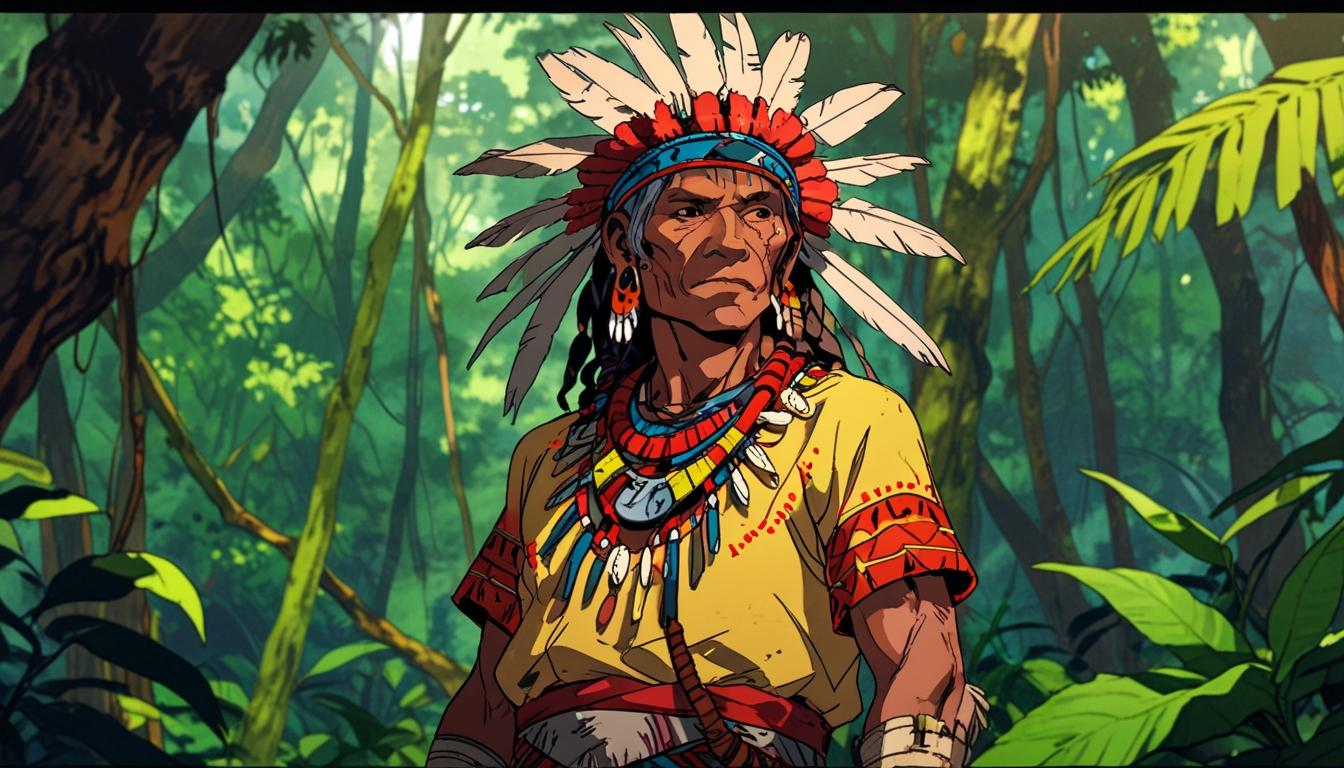Chief Raoni Metuktire, a prominent Indigenous leader from the Amazon, has voiced strong opposition to proposed oil drilling projects in Brazil’s Amazon region, highlighting the severe environmental risks and threats posed to Indigenous communities. Speaking to Reuters this week, Chief Raoni underscored the potential consequences of expanding extractive industries on Indigenous lands and the broader global climate.
The declaration comes amid ongoing pressures on the administration of Brazilian President Luiz Inácio Lula da Silva to navigate the complex balance between promoting economic growth and preserving environmental and Indigenous rights. While some government officials have indicated that oil exploration could serve as a tool to alleviate poverty and drive development in underdeveloped areas, other government figures, including Brazil’s Minister of the Environment and Climate Change, Marina Silva, have acknowledged the concerns raised by Indigenous and environmental advocates. Silva stated, “We are doing all we can for the benefit of all Brazilian citizens. Under President Lula’s guidance, all government sectors are trying to address climate change transversely and in dialogue with all of society.”
Chief Raoni has been an authoritative voice in environmental protection efforts for more than sixty years. He has consistently argued against resource extraction in the Amazon, stressing the incompatibility of such activities with the conservation of the forest and the well-being of its inhabitants. In a 2019 interview with The Guardian, he warned, “We call on you to stop what you are doing, to stop the destruction, to stop your attack on the spirits of our ancestors… When you weaken the land like that, it starts to die.” He added, “If our Earth dies, then none of us will be able to live, and we too will all die.”
The Amazon rainforest, home to approximately 2.2 million Indigenous people from over 400 tribes, plays a vital role in the global climate system. Scientific studies highlight that around half of the Amazon’s carbon storage lies within its soil, with the other half contained in the trees that absorb nearly 20 percent of all carbon captured by vegetation worldwide. The forest’s cooling effects help regulate regional temperatures, and its degradation could lead to significant temperature increases, according to Scientific American.
The tension over oil exploration in the Amazon is not a new phenomenon but rather echoes historic conflicts dating back to the 1960s. During periods such as Brazil's military dictatorship, large infrastructure projects led to the displacement of Indigenous peoples. Recent years, particularly under the administration of former President Jair Bolsonaro, saw increased efforts to open protected Indigenous lands to commercial exploitation. President Lula, who has returned to office emphasizing environmental protection, now faces the test of reconciling economic pressures with conservation commitments.
Chief Raoni’s opposition is emblematic of the broader Indigenous struggle to defend their territories and promote sustainable stewardship of the natural world. His leadership highlights the critical role Indigenous wisdom plays in protecting biodiversity and mitigating climate change. Furthermore, the issue extends beyond local borders; decisions made about the Amazon carry global implications. The potential environmental degradation associated with oil drilling poses risks not only to Indigenous ways of life but also to global efforts to address climate change.
The Organization for World Peace is reporting that Chief Raoni’s resistance serves as a significant voice in calling attention to the intertwined issues of environmental preservation, Indigenous rights, and long-term global sustainability. His stance calls for cautious consideration of the impacts of extractive industries, recognising the importance of maintaining the Amazon’s ecological integrity for current and future generations.
Source: Noah Wire Services
